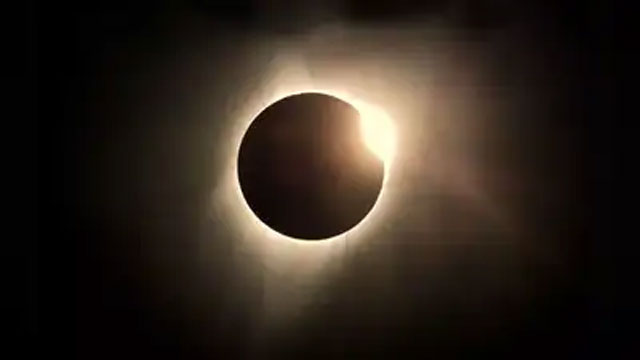Daijiworld Media Network – Abu Dhabi
Abu Dhabi, Jul 20: In a historic celestial event that promises to capture imaginations across continents, the Arab world is preparing to witness its most significant astronomical phenomenon in over a hundred years—a total solar eclipse set to darken the midday skies on August 2, 2027.
The event is not only scientifically extraordinary due to its duration—spanning over six minutes in certain regions—but it also holds immense cultural significance, as millions across North Africa and the Middle East will find themselves directly in the path of totality. The rare alignment of the sun, moon and Earth will turn day into night in countries with ancient legacies in astronomy, offering both a moment of awe and an opportunity to rekindle a connection with the cosmos.

Unlike most eclipses that pass unnoticed over remote oceans or uninhabited lands, this one will carve its path across several major cities and historical landmarks. From the quiet deserts of Libya to the heritage-rich Nile Valley of Egypt, the 2027 eclipse will unfold across Morocco, Algeria, Tunisia, Libya, Egypt, Saudi Arabia, and parts of Yemen. For many in these countries, the phenomenon marks a once-in-a-lifetime opportunity to witness a full eclipse without venturing far from home.
Among the most coveted locations to experience the eclipse is Luxor, Egypt, a city that stands as a testament to ancient civilisation. At precisely 1:02 PM local time, the skies over Luxor will dramatically darken, cloaking its iconic temples and tombs in twilight as the eclipse reaches totality for a stunning duration of 6 minutes and 19 seconds—one of the longest periods visible on land anywhere this century.
According to meteorological forecasts, the most favourable viewing conditions are expected in eastern Libya and western Egypt, where cloud cover in August is nearly nonexistent. However, residents are being cautioned about the intense heat, with temperatures expected to soar above 43°C. From shaded hotel balconies to luxurious Nile cruises, skywatchers are already planning strategic viewing spots to enjoy the cosmic marvel in comfort.
In Saudi Arabia, cities like Jeddah and Mecca will also be treated to an awe-inspiring view, with totality lasting more than six minutes. Though certain coastal and highland regions may experience cloud interference, the excitement surrounding the event remains undeterred.
This eclipse is also emerging as a catalyst for educational outreach and cultural engagement. Educational institutions, observatories, and astronomy groups across the region are expected to organise viewing events, public lectures, and interactive programs. Egypt, in particular, is looking to integrate the event with cultural tourism, drawing global eclipse chasers to its historic monuments for an experience that blends science with heritage.
As the countdown begins, anticipation is building across the Arab world. More than just a spectacular show in the sky, the 2027 total solar eclipse is shaping up to be a moment of unity, reflection, and rediscovery—a reminder of the universe’s grandeur and humanity’s timeless fascination with the stars.